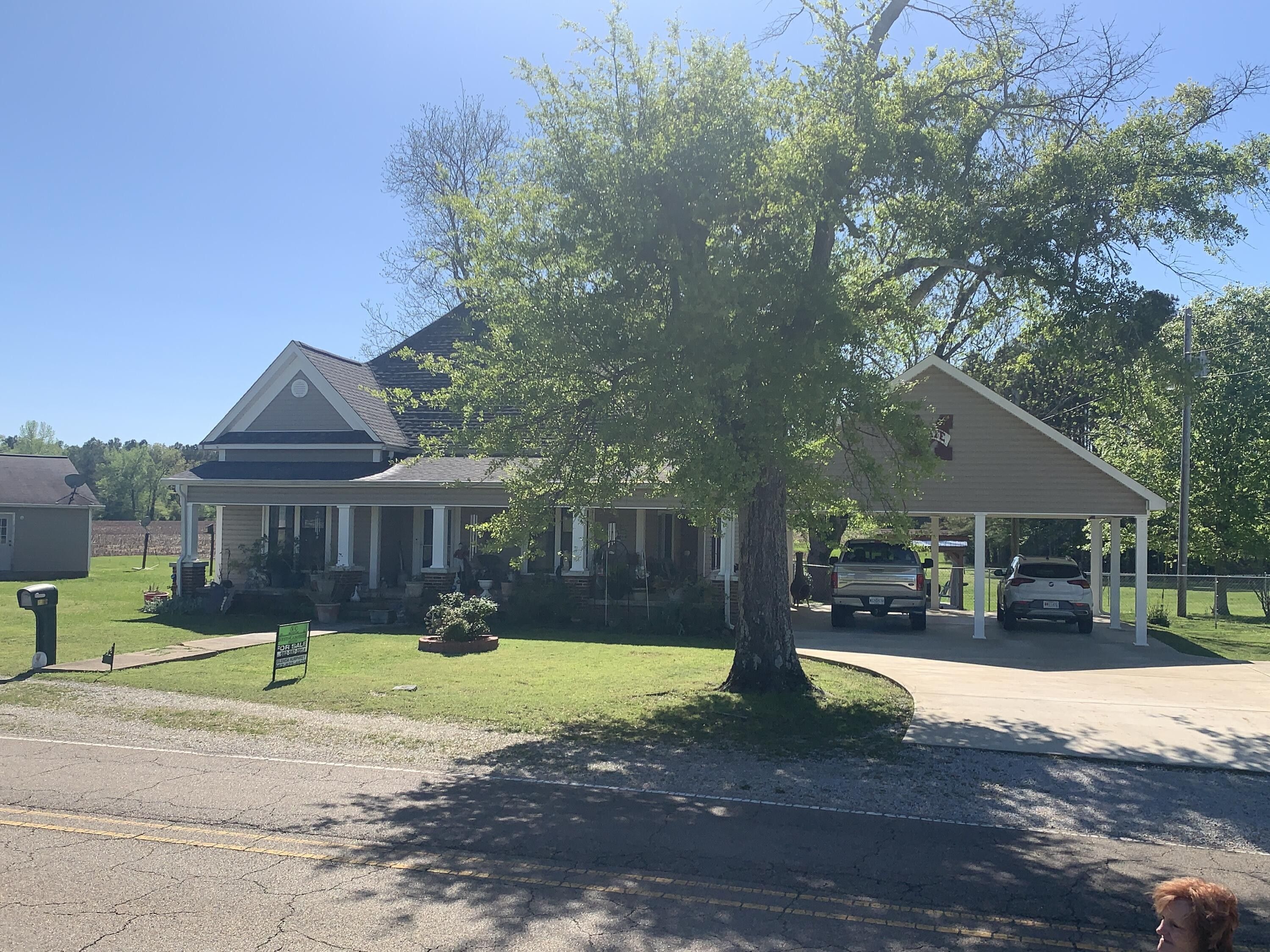Houses For Sale In Monroe County Ms – Millennials and Gen Z, in particular, have embraced the idea of second-hand shopping as a way to challenge consumerism, reduce waste, and express their individuality. Thrift stores often carry a wide variety of goods, from clothing and accessories to furniture, books, and electronics, and each item comes with its own story. When everything becomes a transaction, we risk losing sight of what truly matters. The concept of a circular economy, where products are reused and repurposed instead of discarded, is central to the appeal of second-hand goods. The second-hand market is not just about saving money; it’s about embracing a more sustainable, mindful way of consuming that values reuse, repurposing, and the stories behind the items we choose to keep. Many quality goods are made by artisans or small businesses who take the time to create products that reflect their expertise and passion. For those on a budget or looking to stretch their money further, second-hand markets provide an opportunity to purchase goods that would otherwise be out of reach. This can bring about feelings of uncertainty, as there’s no guarantee that the right buyer or partner will come along. Those who are born into privilege have the means to buy their way to the top, while others are left behind, forced to sell their time, energy, and even their dignity in order to survive. Many people find that buying second-hand furniture allows them to acquire high-quality pieces that are built to last, often with a level of craftsmanship that is hard to find in mass-produced furniture. However, there’s also an argument to be made that, over time, quality goods are often more economical in the long run. Similarly, during periods of economic growth, there may be a greater willingness to spend on luxury second-hand items, such as high-end fashion or collectible items. The production of new goods often requires significant resources, such as raw materials, energy, and labor, while also generating waste and contributing to pollution. The rise of online platforms has transformed the way second-hand goods are bought and sold. For the buyer, it can feel like a great opportunity, a chance to acquire something they’ve been searching for, or maybe just the satisfaction of knowing that a good deal is within reach. It can be a metaphor for much deeper exchanges in life. It carries the marks of life’s moments: the road trips, the adventures, the daily commutes, the memories of friends and family. It implies that there’s nothing off-limits, nothing beyond the reach of commerce. In some cases, sellers may be willing to offer financing options, where they agree to receive payment over time, which can make the business more attractive to potential buyers. For the seller, the goal is often to maximize the value of the business, while for the buyer, the focus is on ensuring that the investment is sound and that the business can continue to thrive under new ownership.

Monroe County, MS Real Estate & Homes for Sale
Lock your ratecalculate paymentsstart your mortgagecompare loans

Monroe County, MS Real Estate & Homes for Sale
Lock your ratecalculate paymentsstart your mortgagecompare loans

Monroe County, MS Real Estate & Homes for Sale
Lock your ratecalculate paymentsstart your mortgagecompare loans

Amory, Monroe County, MS House for sale Property ID 419028460 LandWatch
Lock your ratecalculate paymentsstart your mortgagecompare loans

Amory, Monroe County, MS House for sale Property ID 3211176 LandWatch
Lock your ratecalculate paymentsstart your mortgagecompare loans

Aberdeen, Monroe County, MS House for sale Property ID 417159153
Lock your ratecalculate paymentsstart your mortgagecompare loans

Aberdeen, Monroe County, MS House for sale Property ID 414470747
Lock your ratecalculate paymentsstart your mortgagecompare loans

Amory, Monroe County, MS House for sale Property ID 414492161 LandWatch
Lock your ratecalculate paymentsstart your mortgagecompare loans

Monroe County, MS Real Estate & Homes for Sale
Lock your ratecalculate paymentsstart your mortgagecompare loans

Amory, Monroe County, MS House for sale Property ID 337203491 LandWatch
Lock your ratecalculate paymentsstart your mortgagecompare loans
On one hand, there’s the potential for an established client base, proven systems, and a recognizably brand name. They walk into a space that holds the potential for their own memories to be created, for their own life to unfold. Second-hand goods, especially those that are vintage or antique, often carry a sense of history and craftsmanship that can be missing from mass-produced products. But even as we wrestle with the implications of living in a world where everything is for sale, we also see that this reality is not entirely negative. Perhaps the most troubling aspect of the idea that everything is for sale is how it can shape the way we view the world and each other. But in reality, even the most profound relationships can be commodified in some way. In the realm of electronics, a quality product, such as a high-end camera or a premium laptop, can perform reliably for years, often outlasting cheaper alternatives. A home, a car, a piece of jewelry, a moment in time, a relationship — all of these things, at some point, become commodities. The role of business brokers and intermediaries has become increasingly important in today’s business-for-sale market. The durability and longevity of these products mean they don’t need to be replaced as frequently, reducing the need for constant purchases and ultimately saving money in the process. It carries with it a deep sense of commodification — the idea that every part of our lives, every piece of our history, every corner of our existence, has a price attached to it. For buyers, the process typically starts with identifying a business that aligns with their interests, skills, and goals. There’s something deeply satisfying about using an item that was crafted with skill and attention. The items placed for sale are not merely commodities; they are often vessels of memories, symbols of past achievements, or representations of something bigger than the price tag they carry. In times of financial hardship, such as during recessions or periods of high unemployment, more people may turn to second-hand goods as a way to save money. The “for sale” sign becomes a marker in time, a decision that has been made, signaling that it’s time to move on. This subjective nature of value is what makes the “for sale” market so dynamic. These generations are more aware of the environmental impact of fast fashion, disposable goods, and the need to adopt more sustainable practices. In this sense, quality is not just about prestige; it’s about making thoughtful choices that contribute to a more sustainable and rewarding lifestyle. Once an agreement is reached, the final step is the legal transfer of ownership.
Social media platforms, for example, offer users a chance to buy into their own identity, to curate a version of themselves that is more appealing, more desirable, more marketable. But is this a reflection of reality? Or is it an illusion we’ve created, an idea we’ve accepted in order to make sense of a world that increasingly revolves around consumption and profit?
At the core of this idea lies the assumption that everything, no matter how unique or rare, can be exchanged. Their inherent value comes not only from their physical characteristics but also from the values of durability and sustainability. Books, records, and collectibles are also highly sought after in the second-hand market. As more and more people become concerned about the planet’s resources and the impact of consumerism on the environment, the concept of buying used goods has gained traction as a more sustainable alternative to purchasing new products. Similarly, vinyl records have experienced a resurgence in recent years, with collectors seeking out rare albums and vintage pressings. In the end, the real challenge is to navigate this world — to understand the forces of commerce that shape our lives, while holding onto those things that remain beyond the reach of money. Whether it’s a vintage armchair, a gently used dining table, or a piece of mid-century modern furniture, second-hand furniture can be both functional and stylish. In a world where everything is for sale, it’s easy for the vulnerable and the marginalized to be taken advantage of. For instance, businesses in industries such as technology, renewable energy, or e-commerce may attract more buyers due to their perceived growth potential. Another key benefit of second-hand goods is their positive impact on the environment. When a business is put up for sale, it is typically the result of a variety of reasons, each unique to the situation at hand. Overpricing an item can lead to it sitting unsold, while underpricing it can result in lost potential revenue. Millennials and Gen Z, in particular, have embraced the idea of second-hand shopping as a way to challenge consumerism, reduce waste, and express their individuality. It may have been passed down, carefully preserved, and lovingly maintained. The materials used, whether it’s hardwood, durable fabrics, or premium upholstery, are chosen for their longevity and aesthetic appeal. Whether it’s the affordability, the environmental impact, or the opportunity to find unique items, second-hand goods provide an alternative to traditional retail shopping that is both practical and sustainable. A blacksmith might craft a sword, a tailor might stitch a suit, and a potter might mold a vase. In some cases, the sale of an item can mark a pivotal moment in someone’s life. Many brokers specialize in certain industries or types of businesses, allowing them to better serve their clients by offering specialized knowledge and advice.